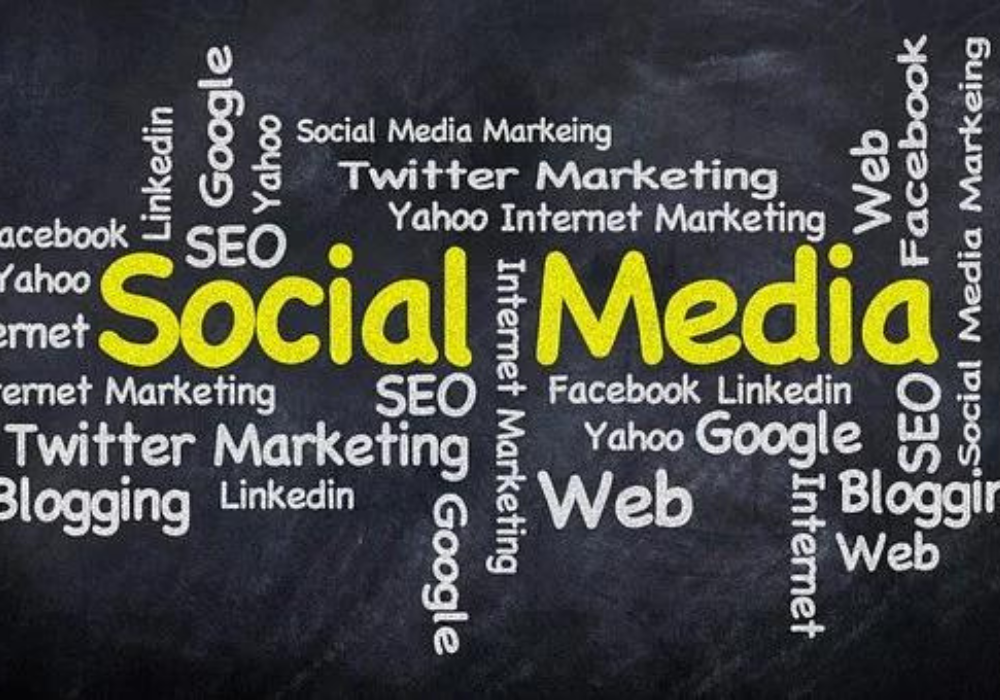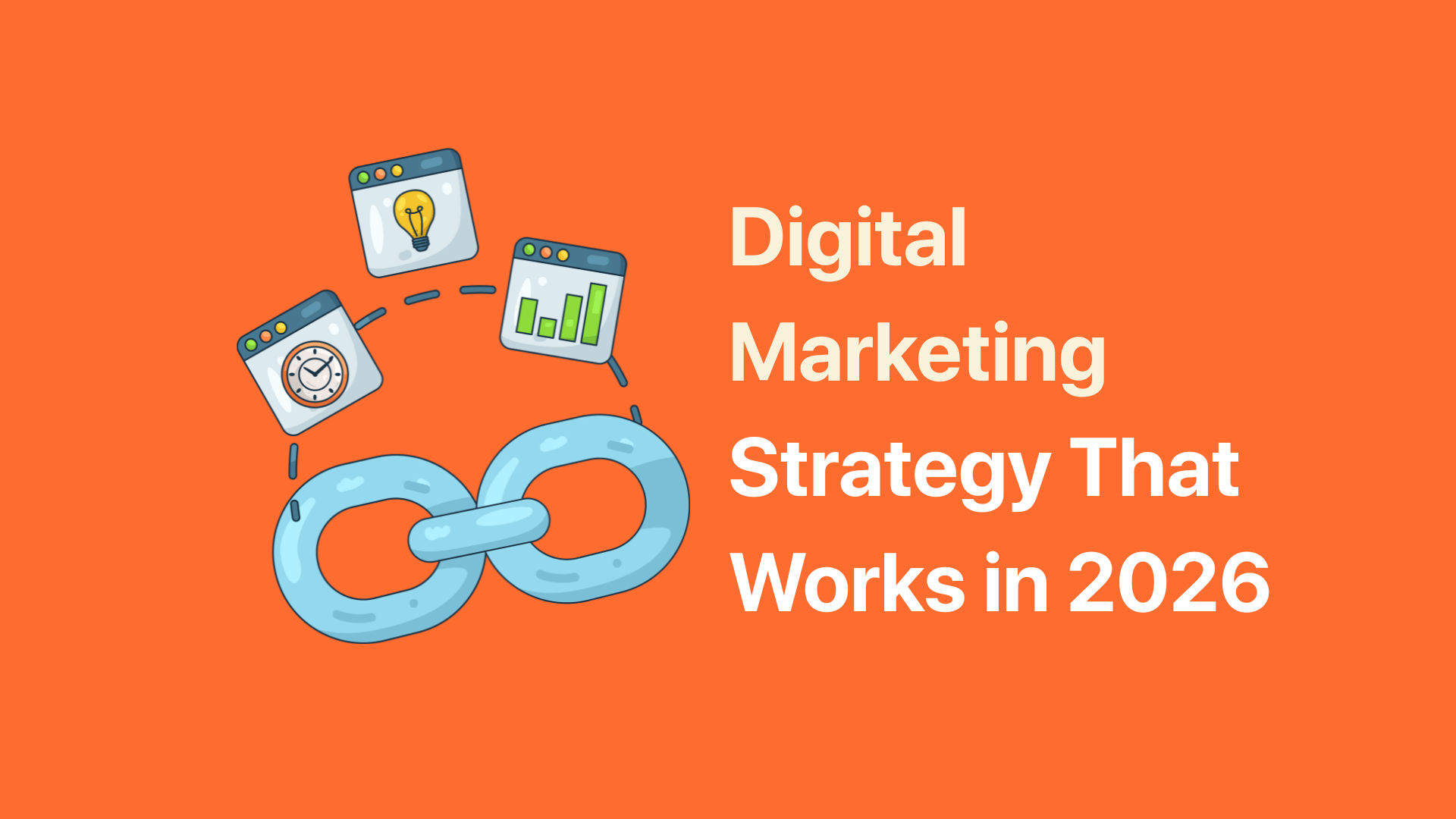Why is social media an important part of inbound marketing?
Sharing videos of cats and selfies from vacation isn't the only thing people do on social media. It's a digital megaphone that amplifies your brand's voice, attracts interested audiences, and drives growth for your organization. Overall, social media is a powerful engine for inbound marketing.
In this article, we will look at why social media has become such an important part of inbound marketing. In fact, 4.8 billion people currently use social media. But first, let’s get to know what inbound marketing is and how it is connected to social media.
What is inbound marketing?
The goal of inbound marketing is to bring in new customers by providing them with content that is both useful and interesting to them. Inbound marketing seeks to build rapport with target audiences by responding to their specific inquiries and problems, unlike traditional marketing, which interrupts the audience with ads.
Organic marketing draws customers to a brand without paying for ads or other paid promotions. It uses strategies including social media marketing, email campaigns, search engine optimization (SEO), and content creation. Converting visitors into customers and customers into advocates, along with promoting long-term loyalty, is the main objective of inbound marketing, which it achieves by providing helpful content and forming relationships.
This marketing strategy is more genuine and successful because it is customer-centric, which is in line with the modern consumer's need for informative and personalized interactions.
Connection Between Social Media and Inbound Marketing
There is a close connection between inbound marketing and social media because both aim to promote a company's products and services to the right audience.
Instead of actively pursuing new clients, inbound marketing focuses on attracting them. The main focus of this kind of marketing is to highlight a company's distinctive features, draw in potential clients, and turn them into leads. Social media plays a crucial role for any business. The specialty of social media marketers is to advertise a company's products and services through various platforms.
Social media allows you the most visibility and connection by accurately targeting the right audience with personalized content. Social networking platforms encourage two-way communication as opposed to one-way channels like email and ads, which are typical of traditional outbound marketing.
The social media landscape has evolved with time, and as a result, smart brands increasingly use captivating content to start meaningful conversations with their audience. The concepts of inbound marketing, which emphasize the importance of creating connections and offering value, are in line with this change from traditional methods to interactive engagement.
Even though traffic from search engines is still important, it won't be enough to accomplish inbound marketing goals on its own. Inbound marketing relies on building a community of devoted customers, and social media helps businesses reach a wider audience, understand their requirements, and engage with them on a personal level.
How Social Media Plays a Crucial Role in Inbound Marketing
Here is how social media plays an important role in inbound marketing:
Building Your Brand With Every Post and Share
One of the best ways to establish a brand over time is to use social media. Your brand's identity and perception are shaped by every post and share. A cohesive brand image is achieved through deliberate and consistent content creation, which serves to reinforce the brand's core values and messages.
Engaging posts on social media provide a brand with a personality and help build relationships with your audience. Sharing valuable and relevant content helps establish a brand as an industry leader by increasing its credibility.
Brand awareness and loyalty get enhanced with time, which in turn favorably influences prospective consumers. The constant process of posting and sharing on social media works to shape and reinforce your brand's presence in the minds of your target audience.
Establishing a Direct Connection with Target Audience
If you want to reach your target audience quickly and easily, social media is the way to go. A genuine and personal connection can be formed through engaging in conversations, replying to comments, and discussion participation. The likes, dislikes, concerns, and feedback of your target audience can be better understood through this kind of one-on-one engagement.
Using this information to personalize your content makes it more engaging for your audience and strengthens your connection with them as a whole. With social media, you can connect with your target audience on a personal level and cultivate connections based on trust, loyalty, and a shared sense of purpose.
Leads and Engagement are Fueled by Valuable Content
One of the most effective ways to generate leads and encourage engagement is to create and share high-quality content on social media. Engage your audience and establish your brand as an authority in your field by posting content that is both informative and relevant.
You gain their confidence and credibility when you regularly provide content that caters to their interests and demands. In turn, this motivates the audience to learn more about your offerings and potentially convert them into leads.
Creating a sense of community and encouraging long-term involvement begins with delivering useful content, which opens th
e door to two-way contact through comments, shares, and conversations.
SEO Boost from Social Authority and Signals
Through social signals and authority, social media is an essential component of search engine optimization (SEO) for your website. To determine how popular and relevant your content is, search engines look at social signals like likes, shares, and comments.
Having a strong social media presence helps build your brand's credibility and authority as an industry leader. With social signals playing an increasingly larger role in search engine ranking algorithms,. Having an active social media presence has two benefits: first, it increases direct traffic to your website; second, it indirectly raises your website's visibility and rating on SERPs.
You can strengthen your online presence and increase brand discovery with the help of social media and search engine optimization working together.
Shaping Strategy with Instant Feedback
Integrating social media into your inbound marketing plan allows you to get feedback in real-time, which is a huge advantage. You can engage with your audience quickly and directly by using social media. Your customers' thoughts, feelings, and preferences can be uncovered through their comments, messages, and reactions.
Your company can quickly adjust and improve its marketing efforts with this instant feedback. You may improve your content, resolve issues, and adapt your offers to the changing needs of your target audience. By monitoring their responses. Since social media is always changing, it becomes a live feedback loop that shapes your plan for better results.
Loyalty and Advocacy-Centric Community Platform
The active community nature of social media platforms encourages audience loyalty and advocacy. By establishing a platform that allows followers to interact, exchange stories, and convey their loyalty to your company,.
Social media helps develop a feeling of belonging. This community helps both fortify bonds with current customers and inspires them to become even more vocal advocates for the company. By enthusiastically sharing their good experiences and recommendations, loyal customers transform into brand ambassadors when they participate on social media.
The power of this natural word-of-mouth advertising to draw in new clients is immense. Thanks to its community-driven structure. Social media has become a vibrant meeting place where connections thrive, resulting in dedicated advocates out of happy consumers.
Affordable Reach Beyond Conventional Ads
When compared to more conventional forms of advertising, social media platforms like Facebook, Twitter, and Instagram offer a more economical way to reach and engage a large audience. Social media platforms provide opportunities for targeted advertising and sponsored content, which are more cost-effective alternatives to traditional advertising.
One major perk is being able to zero in on your ideal customer and get in front of them within your set budget. The massive user base of social media platforms gives businesses of all sizes unprecedented access to different audiences, allowing them to reach more people without spending a fortune. For companies trying to get their names out there on a budget, social media is a must-have tool because of the organic reach it can provide through engaging content and how much money it can save.
Brands of all sizes can compete on a global scale and multiply the impact of their inbound strategy with this budget-friendly technique that democratizes marketing.
Final Words
Social media plays a crucial role in inbound marketing by providing a direct line of communication between brands and their target audiences. Using social media effectively is becoming more of a need as we move through the dynamic world of digital marketing. Incorporating social media into your inbound marketing strategy does more than increase your reach. It also helps you build genuine relationships, boosts your brand's authority, and drives long-term success for your company.











